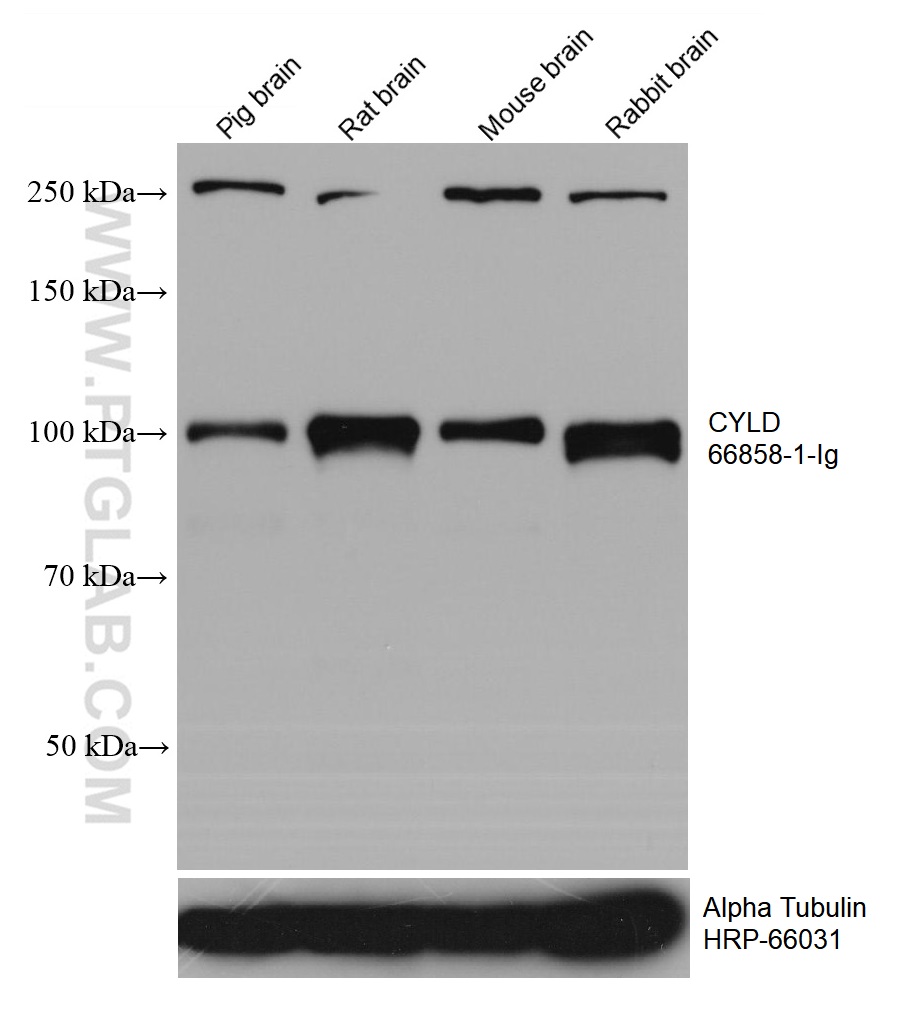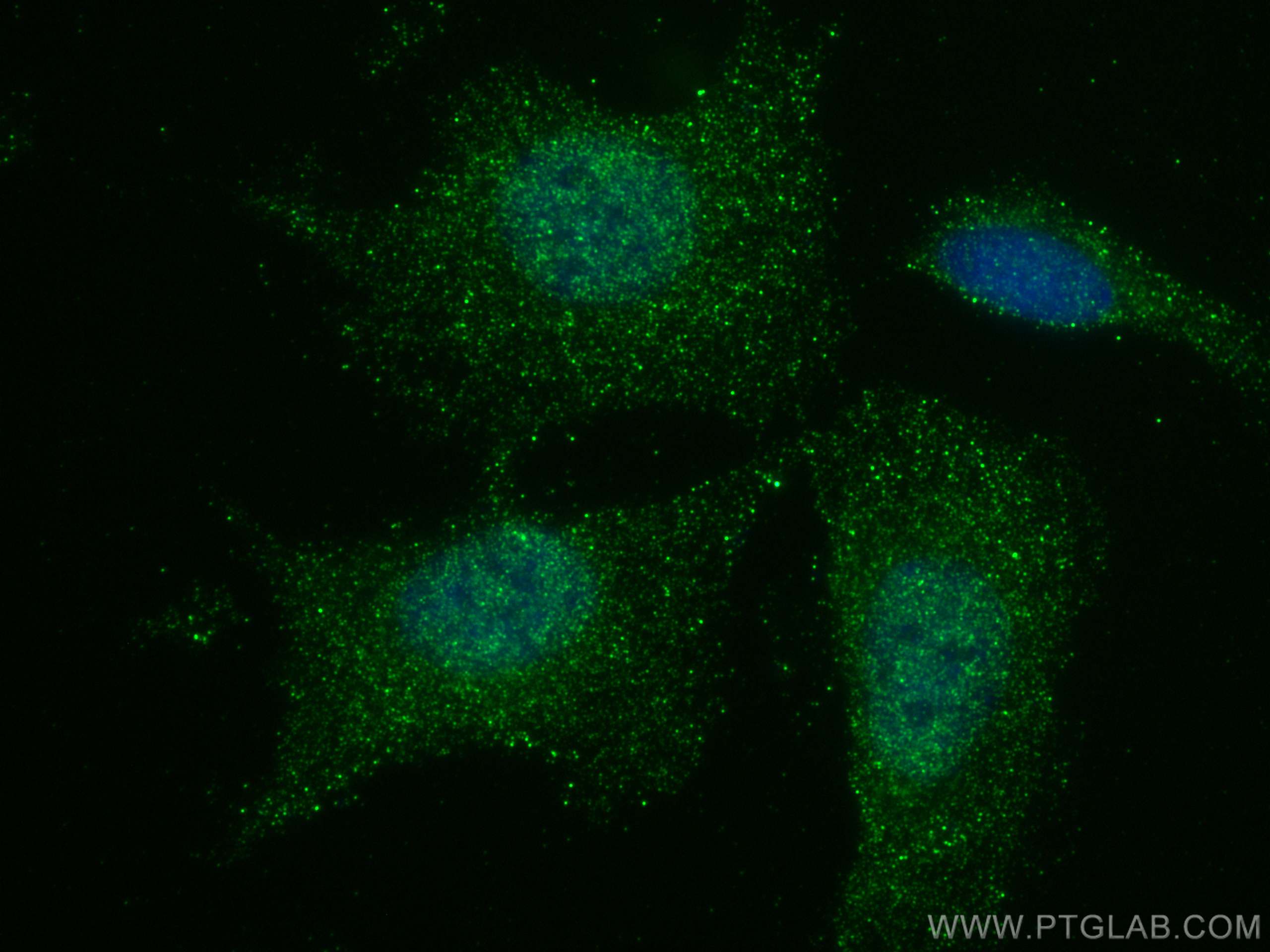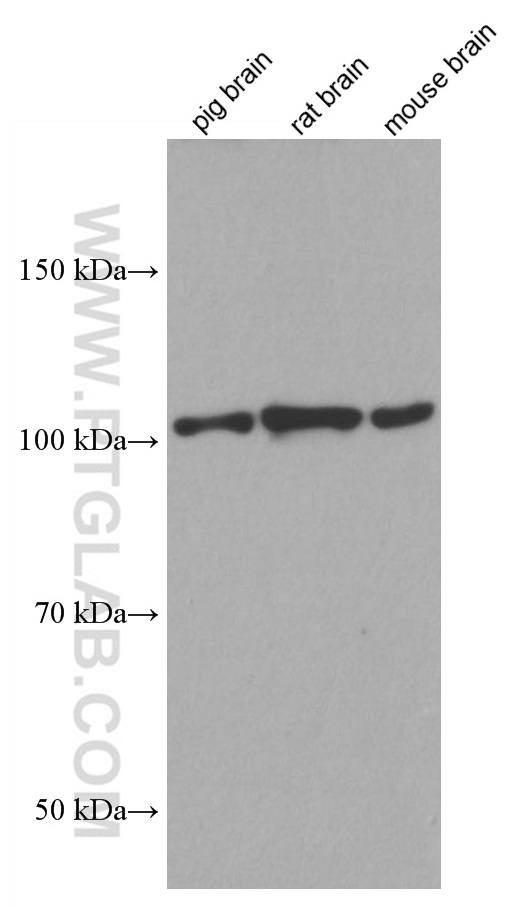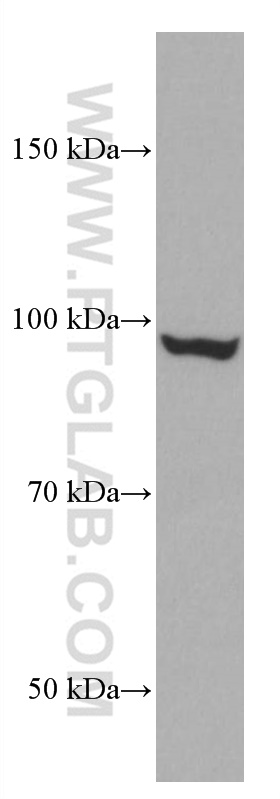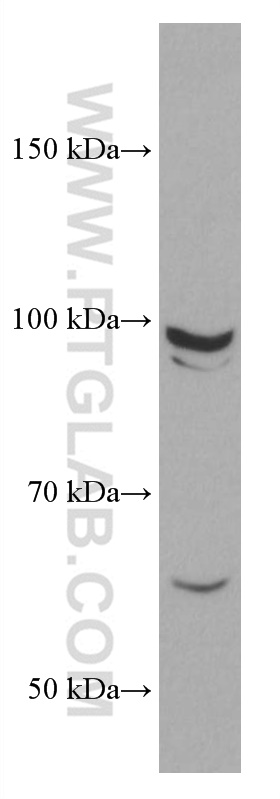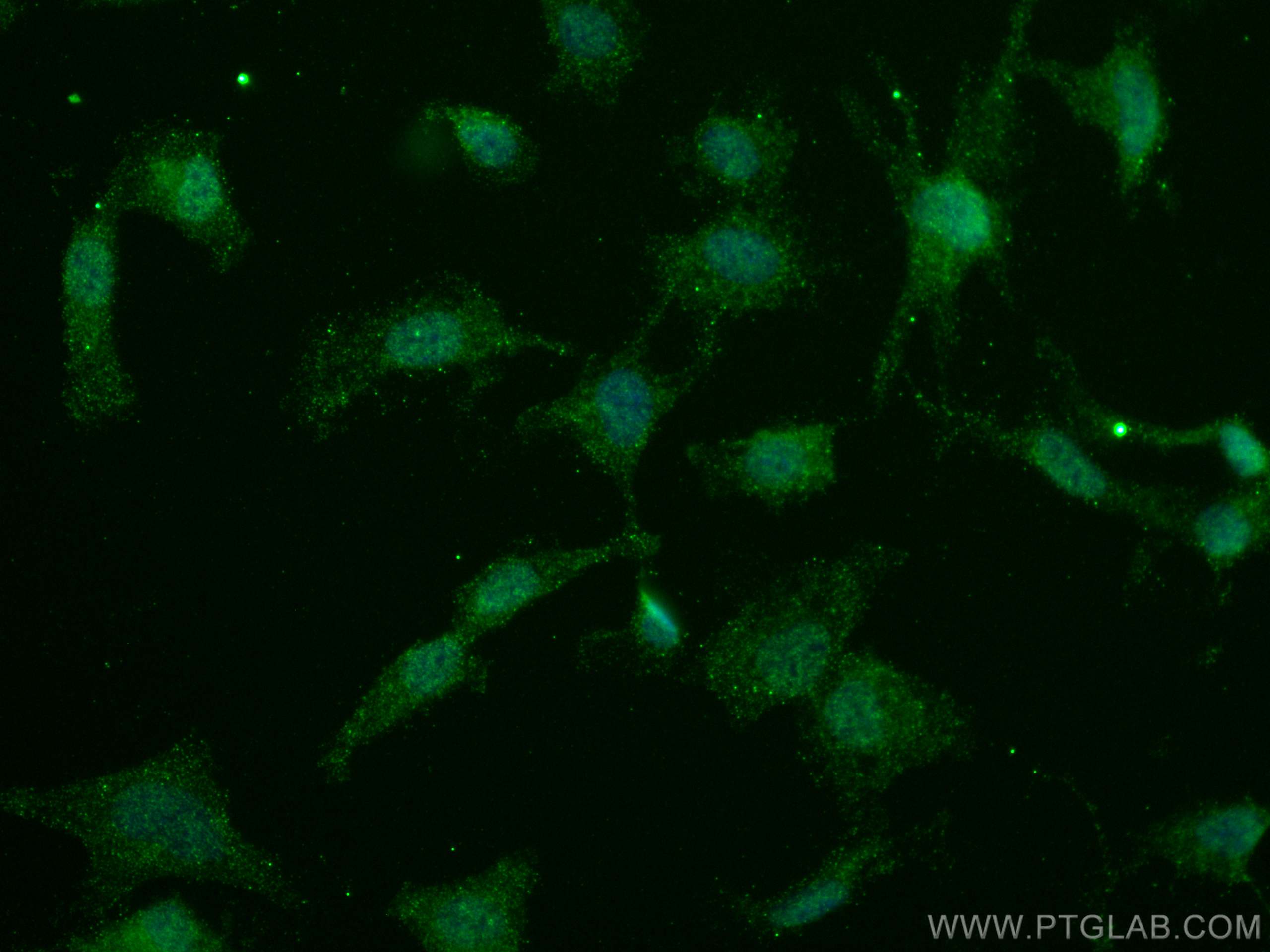验证数据展示
产品信息
66858-1-PBS targets CYLD in WB, IF/ICC, Indirect ELISA applications and shows reactivity with Human, mouse, rat, pig, rabbit samples.
| 经测试应用 | WB, IF/ICC, Indirect ELISA Application Description |
| 经测试反应性 | Human, mouse, rat, pig, rabbit |
| 免疫原 | CYLD fusion protein Ag28333 种属同源性预测 |
| 宿主/亚型 | Mouse / IgG2a |
| 抗体类别 | Monoclonal |
| 产品类型 | Antibody |
| 全称 | cylindromatosis (turban tumor syndrome) |
| 别名 | CDMT, CYLD, CYLD1, CYLDI, Deubiquitinating enzyme CYLD, EAC, FLJ20180, FLJ31664, FLJ78684, HSPC057, KIAA0849, MFT, MFT1, SBS, TEM, Ubiquitin thiolesterase CYLD, USPL2 |
| 计算分子量 | 107 kDa |
| 观测分子量 | 110 kDa |
| GenBank蛋白编号 | BC012342 |
| 基因名称 | CYLD |
| Gene ID (NCBI) | 1540 |
| RRID | AB_2882197 |
| 偶联类型 | Unconjugated |
| 形式 | Liquid |
| 纯化方式 | Protein A purification |
| UNIPROT ID | Q9NQC7 |
| 储存缓冲液 | PBS only , pH 7.3 |
| 储存条件 | Store at -80°C. The product is shipped with ice packs. Upon receipt, store it immediately at -80°C |
背景介绍
CYLD, also named as CYLD1, belongs to the peptidase C67 family. It is the protease that specifically cleaves 'Lys-63'-linked polyubiquitin chains. CYLD has endodeubiquitinase activity and plays an important role in the regulation of pathways leading to NF-kappa-B activation. CYLD contributes to the regulation of cell survival, proliferation and differentiation via its effects on NF-kappa-B activation. It is a negative regulator of Wnt signaling. CYLD inhibits HDAC6 and thereby promotes acetylation of alpha-tubulin and stabilization of microtubules. CYLD plays a role in the regulation of microtubule dynamics, and thereby contributes to the regulation of cell proliferation, cell polarization, cell migration, and angiogenesis. It is required for normal cell cycle progress and normal cytokinesis. CYLD inhibits nuclear translocation of NF-kappa-B and plays a role in the regulation of inflammation and the innate immune response, via its effects on NF-kappa-B activation. It is dispensable for the maturation of intrathymic natural killer cells, but required for the continued survival of immature natural killer cells. CYLD negatively regulates TNFRSF11A signaling and osteoclastogenesis.
